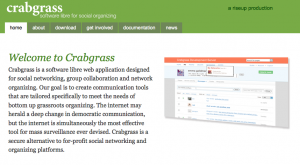Why collaborate with a specific technology? Why not just get our work done some other way and all hand it in? For starts, in a collective–or any horizontal project–there’s no manager to hand it in to, no boss, no one to organize the work for you but you. Getting organized is a systems-level problem that best be addressed as soon as possible.
And for projects that have principles that base around justice, equality, accessibility, and collective or direct-democratic decision making, the choice of platforms is a political decision.
For the 2012 Femme Conference, we needed to set up a system where 14 core organizers and 30 subcommittee members can work together — both in terms of accessibility and capacity. Systems we chose thus had to be not overly hard to learn or use, but still must allow for organization and effectiveness.
- — Wikispace or a MediaWiki http://en.wikipedia.org/wiki/
Wiki - — Open Atruim http://openatrium.com/ [if we went with a Drupal site, this would sit on top of it]
- — Basecamp: http://basecamphq.com/ **my second pick
- — Crabgrass — http://crabgrass.riseuplabs.
org/ **what I wanted - — Google docs https://docs.google.com
I tried to get people to use Crabgrass [open source!] or Basecamp [more useful!], but the request from the majority of the other organizers was that most people had existing Gmail accounts and were familiar with the interface, so we went with G-docs
- Theory: Choosing the achievability of agility and accessibility over principles, choosing to fight battles later with other technologies. For example, I decided to force WP participation rather than “force” the use of a platform that no one would use.
In an ideal build we’d have Crabgrass or Open Atrium sitting on a Drupal site, but in an ideal world we’d be paying someone to build this. Better to pick that which will actually happen and — most importantly, that which people are willing to interact with.
- Theory: I like to occassionally remind people that Gmail is a “begged” resource that datamines our every word typed in, just to raise awareness of the issues in using “free” software that’s not Free/Libre software.
